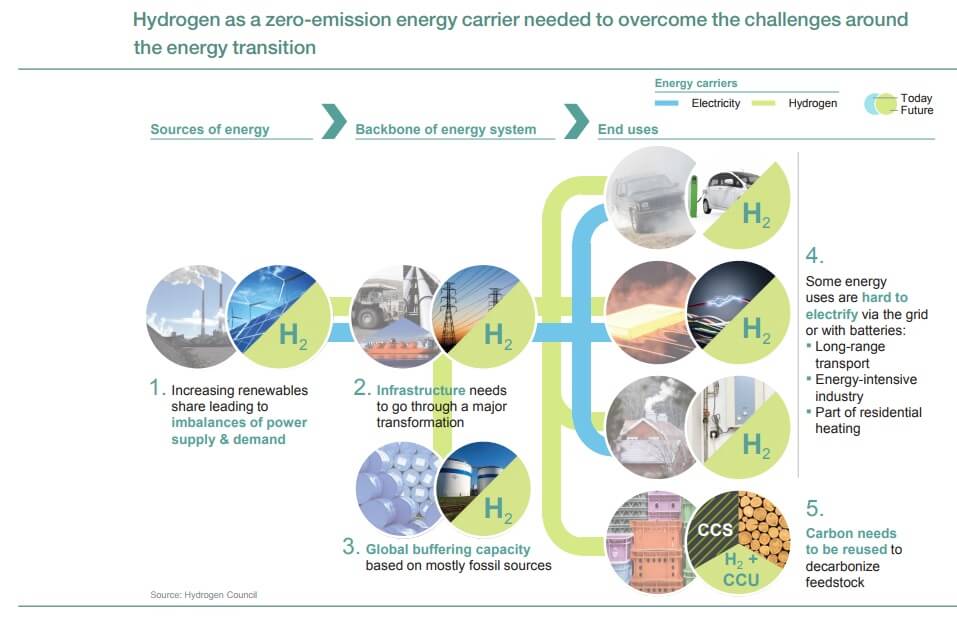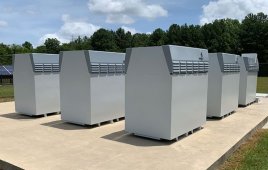Editor’s note: This article comes from the Hydrogen Council. As before, our interest in this organization is that the power to electrolyze water to produce hydrogen will come from wind-generated electricity.
The energy transition, from fossil fuel to those that are renewable, faces challenges. Significant amounts of renewable energy must be installed and integrated while securing the supply and resilience of the system is demanding. Energy end-use sectors, such as transport, must be decarbonized at scale. In this context, we are convinced that the unique contribution that hydrogen solutions offer needs to be strongly reaffirmed now. Hydrogen and fuel cell technologies have significant potential to enable this transition to a clean, low-carbon energy system. Completing this transition will result in greatly reduced greenhouse gas emissions and improved air quality.
The role of hydrogen
We formed the Hydrogen Council to underpin and leverage the enabling role of hydrogen. This partnership of 13 players from various industry and energy sectors with global reach is committed to providing guidance to accelerate and expand the deployment of hydrogen and fuel cell solutions around the world. Hydrogen is a versatile, clean, and safe energy carrier that can be used as fuel for power or a feedstock in industry. It can be produced from (renewable) electricity and from carbon-abated fossil fuels. It produces zero emissions at point of use. It can be stored and transported at high energy density in liquid or gaseous form. It can be combusted or used in fuel cells to generate heat and electricity.
In this paper, we explore the role of hydrogen in the energy transition, including its potential, recent achievements, and challenges to its deployment. We also offer recommendations to ensure that the proper conditions are developed to accelerate the deployment of hydrogen technologies, with the support of policymakers, the private sector, and society.
We, the members of the Hydrogen Council, believe in the potential of hydrogen in making the energy transition happen. To unleash this potential, we ask policymakers for their support to overcome existing barriers. Hydrogen technology rollout requires large-scale efforts and Council members are willing to further increase their investments. To do so, we see a stable, long-term regulatory framework, dedicated coordination, and incentive policies, and initiatives to set and harmonize industry standards as essential preconditions on a political level. We invite governments and key society stakeholders to also acknowledge the contribution of hydrogen to the energy transition and to work with us to create an effective implementation plan – so that the compelling benefits of hydrogen deployment can be reaped
The energy transition – a necessity and a global challenge
The need for an energy transition is widely understood and shared; however, the implications and challenges that must be resolved call for a concerted effort. Hydrogen has the potential to be a powerful enabler of this transition, as it offers a clean, sustainable, and flexible option for overcoming multiple obstacles that stand in the way of a resilient and low-carbon economy.
For the rest of the report: https://goo.gl/9X936K
Filed Under: Energy storage





